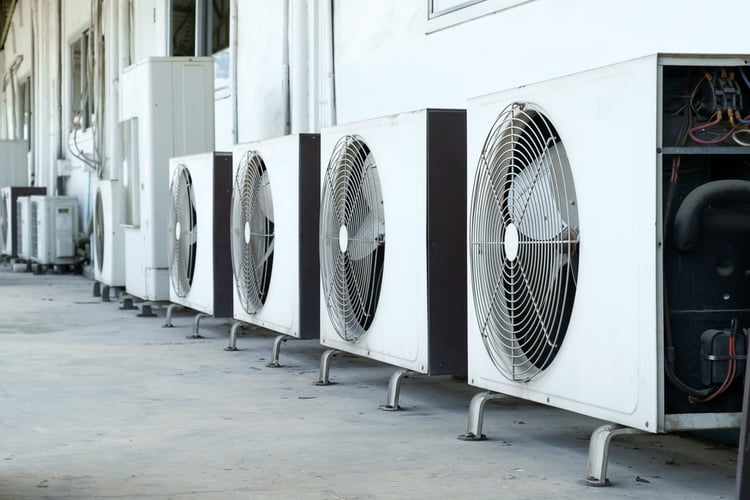Solar panels generate electricity year-round, and the best brands have a lifespan of 25 years or more. However, solar energy systems reach their peak productivity during the summer months, which is precisely when buildings require the most electricity for air conditioning.
Make sure your solar power system is professionally designed.
Here we will discuss three ways that solar panels help building owners reduce their energy bills during the hottest months of the year.
1) Generation of Electricity for Air Conditioning

Air conditioning is the main energy expense for most residential and commercial buildings in the summer, and this has a noticeable impact on energy bills. This is combined with the fact that many electricity suppliers charge higher rates during the summer months. In other words, building owners are not only paying for increased consumption, but also a higher kilowatt-hour price.
When a building is equipped with a solar panel system, part of the air conditioning consumption is compensated by local generation. This reduces the net consumption measured by your energy meter and your electricity bills are also reduced. In places with expensive electricity and abundant sunlight, a commercial solar panel can achieve a payback period of less than six years. Additionally, solar PV systems often qualify for incentive programs and low-interest loans, making them even easier to acquire.
Air conditioning costs were particularly high in the summer of 2022 due to the effects of inflation. It is recalled that electricity prices increased by 13.7% between June 2021 and June 2022, according to Consumer Price Index (CPI) data published in July. However, this also means that solar PV system owners are also seeing greater savings! To further reduce your summer energy bills, you can supplement your investment in solar energy with an air conditioning upgrade.
2) Solar panels provide roof shading

When a commercial roof is equipped with solar panels, some of the sunlight that previously reached the roof surface is not converted into electricity. Solar panels also have a shading effect and the air space between them and the roof also reduces heat transfer.
- The cooling savings due to the shading effect of solar panels are much lower than the savings from electricity generation.
- This means you still need a well-insulated roof. The shading provided by a commercial solar panel is a bonus, but not a substitute for proper insulation.
Solar project engineers typically use the areas of the roof that receive the most sunlight, as this is where the photovoltaic modules can achieve maximum productivity. This has a positive side effect: solar panels provide shading where it is needed most. On the other hand, solar engineers avoid roof areas that are already shaded by natural or artificial obstacles when designing the layout of a photovoltaic array. Any modules installed here will suffer from low productivity, meaning they represent a wasted investment.
3) Solar Panels Can Reduce Demand Charges

Residential energy bills typically only charge one energy fee, meaning consumers pay for the number of kilowatt-hours used. This type of electricity tariff is also common among small commercial consumers. On the other hand, large commercial and industrial customers are typically billed for both energy and demand: kilowatt-hour consumption and also the highest kilowatt demand measured during the billing period.
Air conditioning systems can consume large amounts of energy during the hottest summer days, especially around noon. This means that building owners have to deal with high charges for both consumption (kWh) and demand (kW) during the same month. The cost can be especially high for electricity rates that consider year-round consumption peaks: a single consumption spike on a hot summer day can increase your energy bills for an entire year.
Solar panels tend to reach their highest electricity production precisely when air conditioning systems reach their highest consumption. This can also reduce demand charges since there is some overlap between peak production from solar panels and peak consumption from air conditioning equipment.
Remember that a cloudy day reduces the output of a photovoltaic panel, which means that savings during peak demand also depend on luck. You can add a battery system to achieve demand savings more reliably, as the stored energy can be used at any time. Energy storage can be counted at night when solar panels are unproductive, or during cloudy days when their production is low.

